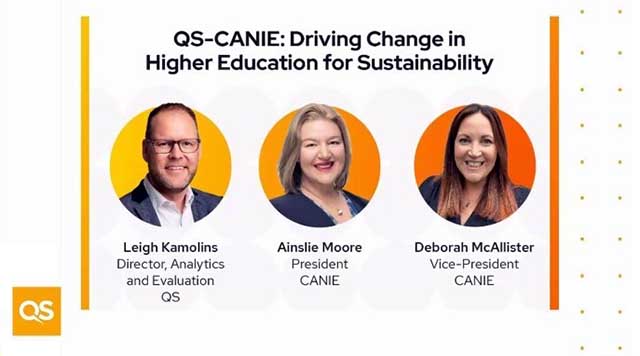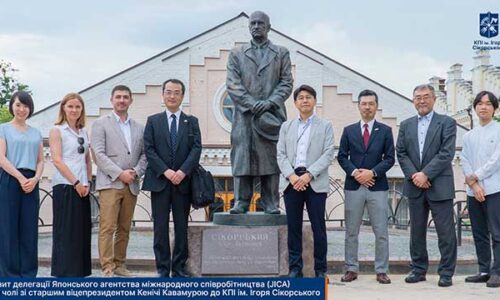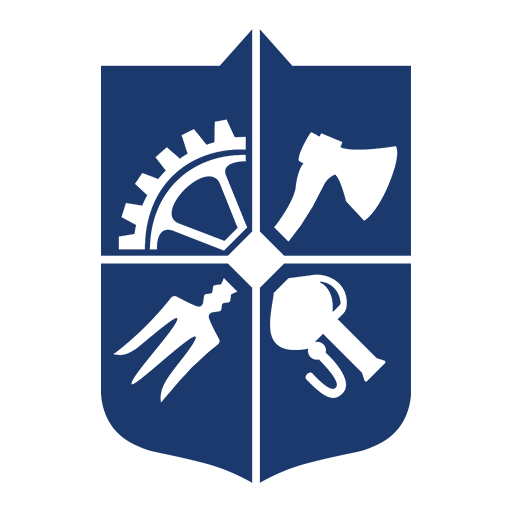
QS, CANIE host first session of sustainability webinar series
On September 11, 2024, the ICD staff attended the first session of sustainability webinar series hosted by the QS ranking experts and CANIE (Climate Action Network for International Educators) leaders on the topic “Driving Change in Higher Education for Sustainability”. As institutions worldwide grapple with the pressing need to address climate change, this session delved into how universities can lead by example, emphasizing both responsibility and action.
The expert panel discussed the importance of embedding sustainability into the core values of higher education, highlighting the transformative power of environmentally conscious policies and practices. The webinar explored how higher education institutions can foster a culture of sustainability, preparing the next generation of leaders to tackle global environmental challenges.
The following issues were also discussed during the webinar:
- How institutions can reconcile the impact of international student mobility on the environment
- Steps universities take to reduce the environmental impact
- How universities are educating people on environmental issues
- How universities can implement climate action
- Acceleration of institutions’ actions to net-zero
- CANIE Accord.
According to Deborah McAllister, CANIE Vice-President, the Accord seeks to align international education with climate action goals, particularly those of the Paris Agreement. It emphasizes the role of international education in fostering global understanding and addressing the climate crisis. Signatories commit to progressive actions aimed at decarbonization, with a focus on reducing greenhouse gas emissions, promoting climate literacy, and advancing social justice. The Accord outlines principles such as taking immediate action, collaborating globally, and ensuring that climate solutions are equitable and inclusive. Institutions signing the Accord must commit to five actions across various operational areas, including leadership, emissions reduction, sustainable travel, facilities, and climate education.
Ainslie Moore, CANIE President, highlighted the importance of partnerships in fostering sustainability within the international education sector. CANIE’s global network helps institutions reduce their carbon footprint and integrate climate action into education. Key initiatives include the CANIE Accord, which provides a roadmap for universities to meet climate goals. She stressed collaboration to achieve systemic change, particularly in addressing challenges like student mobility while promoting climate literacy and sustainable practices. Partnerships beyond universities are seen as crucial to driving innovation.
Leigh Kamolins, QS Director of Analytics and Evaluation, explained to webinar attendees that their rankings assist students in narrowing down their university choices. According to a QS survey, approximately 80% of students consider the environmental impact an important factor when evaluating universities’ actions in this area. QS offers an independent perspective on universities’ sustainability policies and whether they align with their stated commitments. Mr. Kamolins emphasized that the QS Sustainability Ranking is closely tied to the United Nations’ Sustainable Development Goals (SDGs).


You May Also Like

Kyiv Polytechnic team triumphs in international cybersecurity competition
13.11.2025
JICA delegation visits Kyiv Polytechnic
26.07.2025
